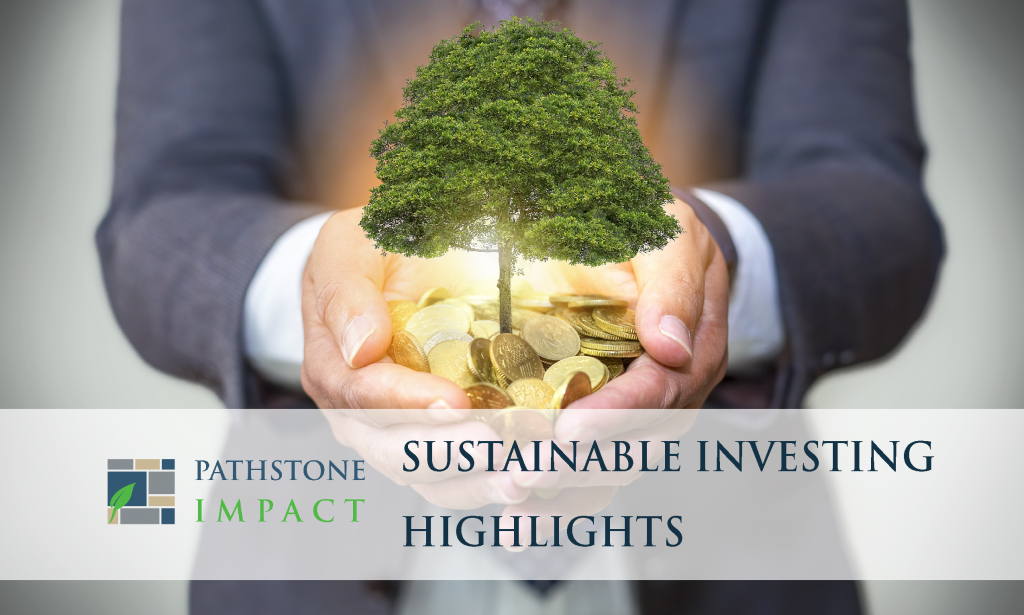Drones: Facilitate Better Understanding of Climate Risk, and Deliver Health Solutions During Pandemic
Climate risks continue, and the path towards a post lockdown of 2020 remains as a keen interest to businesses, policymakers, and individual investors. Scientists are using drones within two important areas of significant risk. Drones are being used to better understand climate risk and are being tested to safely deliver vaccines that may be a solution to the current COVID-19 health crisis.
In the wake of the lockdown of 2020, drone delivery has continued to experience some buzz as a handful of start-ups that provide drone delivery services expressed interest in helping transport COVID-19 vaccines from medical facilities to vulnerable individuals and communities. The rationale for the use of drones is directly linked to the disruption of medical supply chain logistics during the lockdown. For instance, in the United Kingdom, a National Health Services (“NHS”) drone was used to deliver blood tests, COVID-19 samples, and personal protective equipment between hospitals in England. Similarly, before the lockdown of 2020, Zipline, a United States drone delivery start-up, was able to partner with the Rwandan government to deliver blood supplies by drone, serving rural communities with logistics difficulties. Since its partnership with the Rwandan government, Zipline drones “have cumulatively flown more than 1 million kilometers in Rwanda with more than 13 thousand deliveries. On the outskirts of Kigali, drones carried 35% of blood samples to be transfused.”
Drone Technology Improves North Pole Climate Change Expedition and Medicine Delivery
Drones are also playing a role in understanding the magnitude and severity of risks from climate change. Recently, scientists used drones to gather data to better understand the impact of climate change on the North Pole. According to a Bloomberg article by Laura Millan Lombrana, “Drones and helicopters have trouble near the North Pole because global positioning satellites suffer small uncertainties at extreme northern latitudes. This creates mounting confusion for navigation; the closer a pilot gets to the North Pole.”
However, Roberta Pirazzini and her colleague Henna-Reetta Hannula, both from the Finnish Meteorological Institute, were able to be the first to fly drones near the North Pole. Their expedition, which is part of the MOSAiC study of the Arctic, has helped researchers further understand the impact of climate change in the Arctic region, most especially on the North Pole. At the end of the MOSAic expedition, which lasted for more than a year, one scientist “noticed that the region is warming at least twice as fast as the rest of the world,” providing strong evidence that the Arctic is increasingly adversely impacted in a significant and material way.
TCFD Goes Mainstream as Global Big Companies Supports Climate Risk Disclosure
A new report by the Task Force on Climate-related Financial Disclosures (“TCFD”) states that nearly 1500 companies and organizations have expressed their support for the TCFD recommendations, representing an increase of over 85% since the 2019 status report. However, despite the significant momentum, the 2020 Status Report highlights the continuing need for progress in improving TCFD-aligned disclosures given the urgent demand for consistency and comparability in reporting. Particularly, disclosure of the potential financial impact of climate change on companies’ businesses and strategies remains low.”
The TCFD report also found that since its first publication in 2017, climate risk-related disclosures and recommendations have increased steadily, with more progress needed for more TCFD integration into business reporting. Other key findings from the newly released report include:
- In 2019, 42% of companies with a market capitalization above $10 billion to some extent disclosed some climate-risk related information in line with the TCFD recommendation.
- Approximately 60% of large global companies support TCFD recommendations.
- Energy and building material companies lead the way, with 40% of energy companies and 30% of materials companies providing TCFD disclosure.
- The new report provides a roadmap for a better alignment of companies’ climate risk disclosure with the TCFD as a framework and serves as a guide for decision-making.
TCFD, which the Financial Stability Board (“FSB”) launched, was designed to increase transparency and help make the financial markets more efficient and resilient, allowing businesses and investors to better understand climate risk while transitioning into a low-carbon economy.
We need a Marshall Plan to Address Climate Change and Inequality, Says Jeremy Grantham
The lockdown of 2020 and climate change have together caused huge disruption as to how businesses and society interact, resulting in uneven and partial recovery within countries. As businesses, government, and individual investors continue to figure out the path forward towards a post-lockdown world, Jeremy Grantham, the Co-Founder and Chief Investment Strategist of Grantham, Mayo, van Otterloo (“GMO”) has called for a Marshall Plan to revive economic growth amid the pandemic and climate risks linked to threats of global warming. The Marshall Plan is similar to the one developed to help Western Europe recover the catastrophic damages from World War II.
The Marshall Plan should include a robust investment in sustainable infrastructure, which will fuel economic growth that could then help address inequality and climate change. According to Grantham, “A public works program would not only help revive the economy amid Covid-19, but it would also be to the long-term geopolitical advantage of the U.S. because it would help challenge China’s dominance in green energy and industry.” As evidence of China’s dominance, Grantham noted that the U.S. has only 400 electric buses compared with 400,000 in China. The Marshall Plan points to a green economy driven by renewable energy, rather than oil and other fossil fuels that have powered the industry in recent decades.
Grantham’s call for a Marshal Plan came on the eve of the 2020 election that resulted in Joe Biden becoming President-elect, positioned to carry out his campaign plan centered on “building a modern, sustainable infrastructure and equitable clean energy future.”
The Biden Plan proposes spending federal investment funds of more than $5 trillion in funds for spurring state, local, and private measures to address climate change, pushing for net-zero emissions by 2050, reentering the Paris climate accords, and banning new oil and gas permits on public lands and waters.” Furthermore, the plan would expand the “introduction of electric vehicles, through tax credits, boosted research and development into technologies including large-scale battery power storage and carbon capture and minimization, and modernizing infrastructure, including the nation’s electricity grid and a nationwide network of public charging stations for EVs.”
Meanwhile, the United Nations Environmental Program Finance Initiative (“UNEP FI”) and the Principles for Responsible Investment (“PRI”) recently convened an event that brought The Net-Zero Asset Owner Alliance to discuss pathways towards alignment with the International Panel on Climate Change (“IPCC”) 1.5°C scenario and transition to net-zero greenhouse gas emissions by 2050. The Net Zero Asset Owner Alliance is comprised of the world’s thirty largest pension funds and investment firms managing $5 trillion in assets. According to Günther Thallinger, a chief investment officer of Allianz and chair of the United Nations-convened Net-Zero Asset Owner Alliance, “Reaching net-zero is not simply reducing emissions and carrying on with the business models of today.” Similarly, Alliance members “do not seek to “engage in a divestment exercise, rather they intend to engage with portfolio companies to assist them in adjusting their business models.”
Companies Continue to Push for DEI, Committing Large Funds Towards DEI Initiatives.
The current economic and social environment has continued to resonate with businesses as they figure out how to address diversity, equity, and inclusion (“DEI”) challenges that are being exposed by the lockdown and the worst economic recession experienced since the great depression. Addressing DEI challenges has become an essential topic for businesses, individual investors, and foundations trying to align their investments with their values or mission. For instance, companies globally are creating DEI strategies or initiatives to address concerns associated with DEI issues.
American Express recently joined the league of corporations pledging funds to address DEI issues. AMEX has committed approximately $1 billion to advance racial and gender equality. The commitment is arising out of heightened awareness of the need to address racial inequality resulting from the series of protests earlier this year.
Earlier in October, JP Morgan was the first financial company to commit $30 billion over the next five years to address racial inequality. According to Jamie Dimon, CEO of JP Morgan Chase, “We can do more and do better to break down systems that have propagated racism and widespread economic inequality, especially for Black and Latinx people.”
Meanwhile, Wells Fargo became the latest company on Wall Street to create an executive role focused on the company’s diverse segments, representation, and inclusion, with the hiring of Kleber Santos. The appointment of Kleber came after Charles Scharf, CEO of Wells Fargo, commented on a Zoom meeting that Wells Fargo is unable to reach its diversity goals because there are not enough qualified minorities from which to recruit. Kleber will report to Scharf and will serve on the company’s Operating Committee.
Please see the PDF version of this article for citations and important disclosures.




















